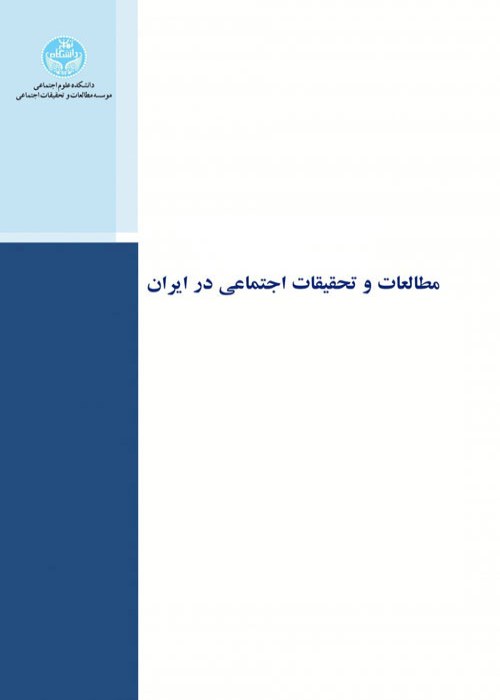Association between Trust and Social Participation (Case Study: Citizens in Hamadan Province)
Hamedan is one of the provinces of Iran with a full-fledged mirror of the diversity of Iranian society. On the other hand, like other provinces, it has undergone changes due to the experience of development programs. Hamedan is a combination of different ethnic groups of Persians, Lors, Turks and Kurds that today more than ever before are integrated into each other and are in daily interaction and communication with each other. In the context of such diversity, the issue of trust and social participation is of considerable importance.
This study aimed to investigate the relationship between social trust and social participation in Hamadan province. This study is conducted by a quantitative method. The statistical population consists of all people aged over 15 years living in 9 cities of the province, which is 612449 people. A samples of 800 individuals have been selected for the analysis. The required data were collected through a researcher-made questionnaire.
The results have indicated that, in general, the level of social trust is low with an average of 42.41% in the study population. Meanwhile, institutional trust is lower than other dimensions of trust with an average of 38.56. The level of social participation is also high with 89.61. Informal participation is lower than formal participation. The results of the hypothesis test have indicated that the variables of gender, income and education have no significant relationship with social trust and social participation. But the relationship between age and participation is significant and negative; that is, as people get older, participation decreases. Both the variables of trust and its dimensions (institutional, public and interpersonal trust) have a significant relationship with social participation. Regression results have also indicated that, in general, the research variables could predict 0.63% of changes in social participation.
In general, based on the findings, it can be said that social participation is a difficult task without improving the level of social trust in the cities of Hamadan province. Therefore, raising the level of social trust, especially institutional trust, is a necessity. The proper functioning of institutions, especially those that deal directly with the people, is crucial. Institutions such as banks, municipalities, law enforcement, the judiciary, etc. are decisive in this regard.
- حق عضویت دریافتی صرف حمایت از نشریات عضو و نگهداری، تکمیل و توسعه مگیران میشود.
- پرداخت حق اشتراک و دانلود مقالات اجازه بازنشر آن در سایر رسانههای چاپی و دیجیتال را به کاربر نمیدهد.


